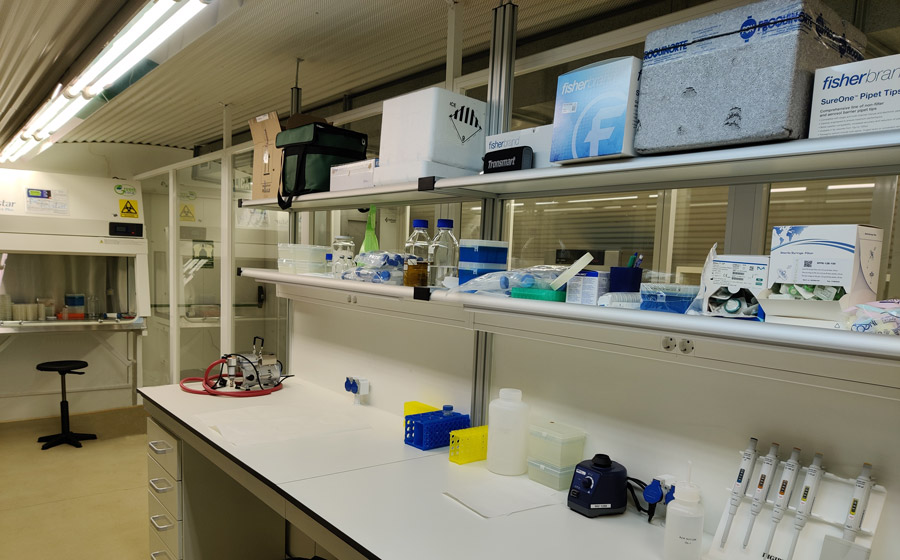The LSC’s Bio Platform is created with the aim of hosting biology experiments in a low background radioactive environment. It has both surface and underground facilities that allow experiments to be replicated in the presence or absence of radiation, with the objective of studying how different types of radiation (gammas, muons and neutrons) affect the metabolism of different biological models. This Platform is also equipped with a clinostat to host experiments in microgravity conditions underground.
At present, the underground laboratory features the typical equipment of a microbiology laboratory:
Class II biological safety cabinet
Autoclave
Water purification equipment (Type I and II)
Thermostatised bath
Refrigeration and freezer equipment -80°C
Centrifuge
Refrigerated bacteriological incubator
Stereomicroscope
General equipment: micropipettes, vortex, stirrers, scales…

The surface laboratory is equipped with:

Orbital incubator
Refrigerated bacteriological incubator
Spectrophotometer
Fluorescence microscope
Water purification equipment (Type I and II)
Thermostatised bath
General equipment: micropipettes, vortex, stirrers, scales…
The LSC also has a long and successful track record in low background physics experiments, whose experience is applied to biology experiments, using the same lead, copper, polyethylene… shielings as those used in the high-sensitivity detectors housed in the underground laboratory.
Experiments already approved on the Platform to be carried out during the next semester include:
Effect of low radiation environment on the viability/growth of bacterial communities recovered from D2O.
Study of the effect of low radiation background on pathogen-host interaction: test with Caenorhabditis elegans and Orsay nodavirus.
Study of DNA damage repair for improved cell survival in the absence and at extreme radiation levels.
Luria-Delbrück 2.0: evolution in the context of cosmic radiation.
Formation of multicellular structures in adapting unicellular organisms close to Metazoa in response to a low radiation background.
Chronological ageing and mutation rate of yeasts under low-radiation conditions.

